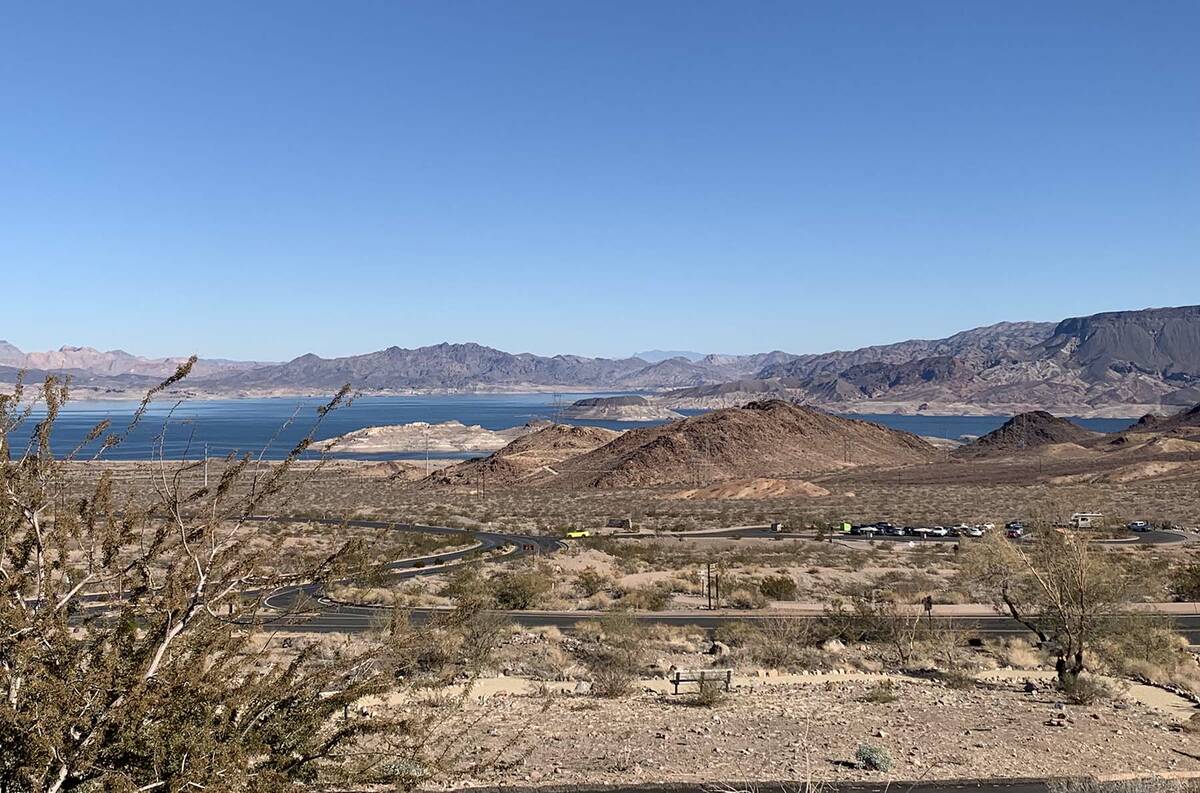Agency seeks power to limit residential water use
While Western states work to hash out a plan to save the crumbling Colorado River system, officials from Southern Nevada are preparing for the worst — including possible water restrictions in the state’s most populous county.
On Feb. 23, the Nevada Legislature introduced Assembly Bill 220, an omnibus bill that comes from the minds of officials at the Southern Nevada Water Authority.
Most significantly, the legislation gives the water authority the ability to impose hefty water restrictions on individual homes in Southern Nevada, where three-quarters of Nevada’s 3.2 million residents live and rely on the drought-stricken Colorado River for 90 percent of their water.
“We’ve been repeatedly surprised by how quickly the situation on the river has degraded. We need to be considerably more aggressive in planning for those worst-case scenarios,” the bill’s lead sponsor, Assemblyman Howard Watts, D-Las Vegas, said. “We’ve got to look down the line.”
The bill, if approved and signed into law in its current form, would stand as another substantial step toward conserving Nevada’s tiny 1.8 percent share of the Colorado River, a river that has seen far less water in recent years than what current management plans allow to be taken out between the seven states that rely upon it for drinking water and agriculture irrigation.
That discrepancy between the water supplies and actual use from the river has sent the system’s two major reservoirs — Lake Mead and Lake Powell — to historically low levels, and federal authorities say that without additional restrictions to curb water use across the basin, the river’s ability to deliver water and generate hydropower at its major dams could be in jeopardy within just a few years.
Under the bill’s current language, the water authority’s board of directors could limit residential water use to as little as 0.5 acre-feet per home annually, or about 163,000 gallons.
The average single-family home in Southern Nevada uses about 130,000 to 132,000 gallons annually, according to the water authority, meaning that such restrictions would be felt more by the valley’s larger residential water users.
‘Scarce and precious resource’
Such restrictions could be approved by the authority if the federal government declares water shortages in the Colorado River — which has been the case for each of the past two years, and projections for Lake Mead’s water levels show that shortage conditions likely will remain in place into the foreseeable future.
“It shows what Nevada is willing to do. It shows what urban communities are willing to do to conserve a scarce and precious resource in the arid West,” Watts said.
Bronson Mack, spokesman for the water authority, said the change would allow the agency to be more flexible and responsive in dealing with water shortage situations, especially if conditions along the river degrade to a point where the federal government was forced to impose restrictions across the entire basin and significantly limit water deliveries.
The Bureau of Reclamation is currently reviewing various proposals to cut water use along the river by as much as 25 percent for the next several years — reductions it says are needed to keep Lake Mead and Lake Powell from crashing amid further drought and protect critical infrastructure at the reservoirs’ respective dams.
Nevada, Arizona, Colorado, Utah, New Mexico and Wyoming jointly laid out a proposal that aims to share the pain of the reductions between the lower basin states, while California, the lone hold-out from that group, issued its own proposal that puts a heavier burden on Nevada and Arizona while protecting California’s senior water rights.
The Bureau of Reclamation is expected to release a draft of its analysis in April and a final version by August, which is also when the agency typically announces water reductions under shortage conditions for the basin states.
But the Nevada Legislature only meets regularly every two years, meaning that barring a special session being called, lawmakers would not be able to address the issue until 2025.
“That’s not going to wait until the next legislative session,” Mack said. “We want to get this type of authority in place now in case we have to implement something like that in the future.”
Need for change
Kyle Roerink, executive director of the Great Basin Water Network, said the types of residential water restrictions included in the bill clearly target the top water users in the valley — a group the water authority has aggressively tried to curb in recent months. Starting this year, the Las Vegas Valley Water District has a new water rate structure that includes substantial fees targeting the top 10 percent of its customers in hopes of getting them to lower their water use.
“I honestly think that provision is meant to send a signal to everyone that if you think that you are immune to the actions of the water authority protecting the system, you are sadly mistaken,” Roerink said.
He added that people are struggling with the “need to change because of climate change.”
“Changing people’s behaviors is and always will be the hardest part of the job,” he said. “Sometimes the only way you can change certain behaviors is to bring the hammer down.”
The bill was sent to the Assembly Committee on Natural Resources and has not been scheduled for a hearing.
Contact Colton Lochhead at clochhead@reviewjournal.com. Follow @ColtonLochhead on Twitter.















